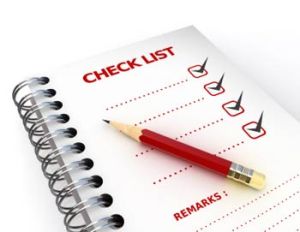
I know what you’re thinking. “Another post on The Tax Bleep? How could that be? It is after April 15th, and I don’t need to think about taxes for another year!” I get it. No one wants to think about their taxes more than the most minimal amount of time necessary. However, there are a few things you can do throughout the year to make your taxes less stressful and cumbersome when the that time of year rolls around.
1. If you switch jobs and make significantly more or less money than you were making during the previous portion of the year, be sure to take this into account when calculating your withholding. You can use the IRS calculator as one option. Another option is to contact your CPA and ask them what the tax implications of your job switch will be. Lastly, you could input your estimated earnings into the 1040 and calculate your tax manually based on tax tables.
2. If you have a big life event, be sure to adjust your withholding for this change. For instance, if you have a baby, you will be able to deduct medical expenses associated with having the baby. You will also have another exemption on your tax return which is an extra $4,000 for 2015 that you get to deduct from your income. Another life event that may affect your taxes is if you get married! Getting married will usually double the amount of money you make, but will also change your filing status as well as your exemptions. You may also need to adjust your withholding to take this into account.
3. Many people invest in various things. A common investment is in stock. It is extremely important to keep your basis information for any stock purchased. Basis is the amount you originally paid for the stock. When you sell the stock, it is important to have your original basis because the basis reduces the amount of the sales price on which you are taxed. For instance, if you sell stock for $500 in 2015, but you paid $400 for the stock in 2012. This means you will only be taxed on $100 instead of the full $500 sales price. If you purchased stock a long time ago and your broker does not have record of the basis, be sure to take the time to find it through out the year so your tax preparation process can be painless when the time comes. If you don’t have basis when you send your information to your CPA, then they will inevitably call you looking for that number, and your tax return won’t get finished until you have found it or give up looking.
4. If you plan on switching CPAs for the upcoming tax year, it would be very helpful for your new CPA to have your tax returns for the year or two prior. If you can get these documents together, and give them to your CPA, they can be sure to take into account any carryover losses or other information that may be necessary in preparing future tax returns. It is much more efficient to give these to your new CPA so they don’t have to ask and wait for your response.

These are just a few tips that you can do to prepare for next years tax season to make it less stressful. You can also check out various tax checklists online! It could also hopefully help you avoid a slap in the face when you receive your tax return showing that you owe an unexpectedly large amount of tax. Are there any other things you can think of to help you prepare your taxes throughout the year? Leave your comments below!

